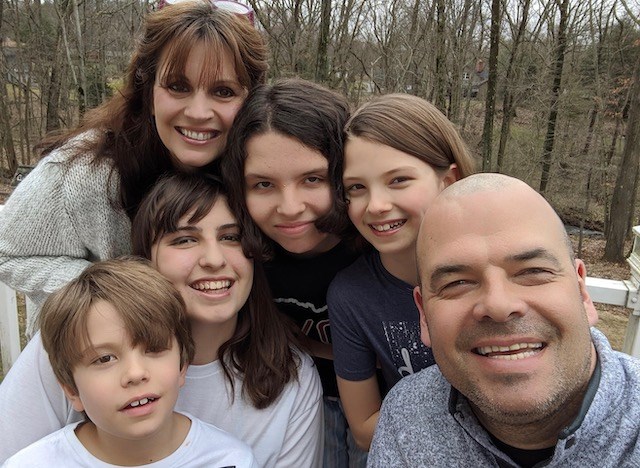
I really like social media. I’ve enjoyed participating in the social aspects of the Internet since I was playing text-based MUD (multi-user domain) games in the Becker Hall computer lab at Clarion University in the early 1990s.
I was one of the first Youngstown State University professors on Facebook in 2005, even though I told my students I was sure there was no way the fledgling platform could compete with MySpace.
If there were an egg-on-face emoji, this would be a good place to insert it. :)
Because I was such an early adopter, the other day I got a message about a Facebook memory I had that was 15 years old. How is this possible? Did I really post things to Facebook in 2006 that would warrant a relevant memory?
The memory wasn’t a picture or a video, just a status update. This was back in the good ol' days of Facebook when status updates began with our names followed by whatever activity we deemed relevant enough to share with the world. It was so old, it started “Adam C Earnheardt... is boarding a plane for Florida.”
It must not have been a very important memory because I don’t even remember why I was flying to Florida.
Looking at the memory made me think about what social media reminders will look like in another 15 years. I’ve turned to social media throughout the pandemic to connect with family and friends, to laugh (because, admit it, we’ve all needed a good laugh), to commiserate, and like many others, to share my experiences with COVID life. These innocent posts I’m sharing with my Facebook “friends” right now are going to come back to me in the future and (hopefully) remind me of a time that has long since passed.
When we reach out to people through social media, we often only think about the connections we’re making at that moment. The connection feels immediate. Often we’ll get “likes” and comments in a matter of minutes. But there’s something more to it. Whether it’s Facebook or some other social media platforms, they serve as our autobiographies.
Memoirs and autobiographies used to be something reserved for a select few. Now, thanks to social media, we can all have them. One defining element of media innovation is that it opens the world to more and more people by offering more and more tools for communication. Gutenberg’s press put the written word in the hands of the masses, encouraging literacy, revolution, and the documentation of our shared history. Daguerreotypes, the first commercial cameras, allowed everyone to record their images so that many more of us could have a record of what our ancestors looked like. Phonographs and gramophones brought music into the homes of average people who couldn’t afford to attend concerts accessible only to the elites.
Now our social accounts have allowed us all to publish our own stories. And like our grandmas and aunts and mothers and others who elegantly scrapbooked every aspect of our lives with love and lots of glue, we’re getting really good at scrapbooking via social media.
From a larger perspective, we are leaving behind artifacts of the pandemic for future generations to study. They will be able to scrape the internet for firsthand accounts of health care workers, first responders, authors, amateur photographers, and random folks like you and me. Those posts about getting the vaccine might inform research into the politics of public health messages. Maybe they’ll avoid some of our mistakes, but mirror what we got right.
Even better, social media is global. Future research can look at how average citizens (i.e., those who enjoy free speech and access to social media), regardless of wealth, status or national origin, talked about things like lockdowns and masks.
Sometimes when we post a message to our social media platform du jour, it feels like we’re shouting into the void, with barely a faint echo in response. We’re waiting to hear if someone is listening. What we might not realize at that moment is that as our messages accumulate, we’re doing more than waiting for the echo’s return. We’re going on the record about what it’s like to live in this crazy world right now. We’re reading first hand accounts of people we don’t know personally, but can relate to on some level - family and friends and friends of friends who might be living with COVID, or worse, experiencing loss because of it.
Sure, it’s easy to knock social media. It’s not always the most positive, psychologically healthy environment to hang out in. But it retains the power to connect us while collecting and curating our pasts.
What we’re experiencing together right now could and should be one of the more positive outcomes of living through COVID with this powerful technology. Because as we’re recording our little part of the world, we’re putting our stories in future history books and maybe even a few Wikipedia entries.
— Adam Earnheardt is professor of communication at YSU and executive director of the Youngstown Press Club. Follow him on Twitter at @adamearn.
"Media" - Google News
November 01, 2021 at 03:11PM
https://ift.tt/3byGtlz
The Earnheardts | Our shared social media history - Mahoning Matters
"Media" - Google News
https://ift.tt/2ybSA8a
https://ift.tt/2WhuDnP
Bagikan Berita Ini














0 Response to "The Earnheardts | Our shared social media history - Mahoning Matters"
Post a Comment